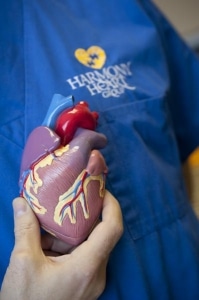CAUSES OF HEART DISEASE
The heart is a complex pump that pumps oxygen-laden blood to the organs of the body. Failure of the heart to function properly can cause damage to many organ systems, including damage to the heart muscle itself. There are different types of heart disease and each has assorted causes. Most commonly, heart disease is a reference to Coronary Artery Disease and diseases that arise as a result of coronary disease, such as heart failure. There are also diseases of the heart valves and heart muscle.
Coronary artery disease is usually the result of multiple factors coming into play to clog the arteries that supply essential blood to the heart muscle. These factors, frequently referred to as risk factors, include diabetes mellitus, hypertension, elevated cholesterol and tobacco abuse. Physical inactivity also contributes to the appearance of coronary artery disease. Family history of coronary artery disease is also another strong predictor for the development of coronary-related issues.
Coronary artery disease can lead to heart failure, life-threatening arrhythmias and death. The best plan is to fight off coronary heart disease by controlling the risk factors. Individuals should suspect problems if symptoms arise and seek medical attention immediately.
SYMPTOMS OF HEART DISEASE
Symptoms of coronary heart disease include the classic complaint of chest pain. The pain does not have to be of severe intensity to awaken one to the possibility of a life-threatening problem. Chest discomfort, pressure, burning, squeezing, heaviness and soreness are some of the qualities of chest pain. The discomfort may also be located in the arms, back, jaw, neck and side of the head. Other symptoms may include nausea, sweating, racing heart, dizziness, shortness of breath and fatigue.
The symptoms of valvular or myocardial (heart muscle) disease could include shortness of breath, palpitations, swelling of the feet, weight gain and fatigue.
If one has these symptoms, one should seek medical attention immediately.
HOW TO PREVENT HEART DISEASE
You can prevent heart disease by knowing your risk factors and working to adjust for them. If your sugar is high, work to lower it to normal levels. If your cholesterol is elevated, change your diet and talk to your doctor, who may place you on medications. If your blood pressure is high, take steps to lower it. Medications, weight loss, meditation, salt avoidance and diet are just a few of the steps to lower pressure and prevent heart disease. Exercise regularly to reduce stress and to further reduce the chance of developing heart disease.
Your best bet is to stay in close touch with your cardiologist and primary care doctor. They will set you on the right path. Take good care of yourself!

